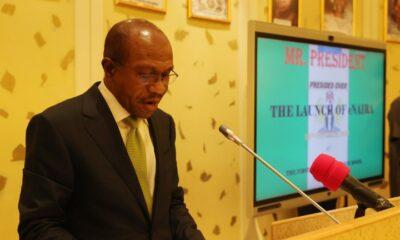About a week to the expiration of the January 31 deadline given by the Central Bank of Nigeria (CBN) for the use of the N1000, N500 and N200 old naira notes, some Nigerians have urged the bank to extend the date.
The Nigerians, most of whom are traders, lamented the scarcity of the new naira notes.
Market women and men in Osun State pleaded with the authority of CBN to extend the January 31 deadline by which the old naira notes would have been completely deposited at the banks.
Investors King had reported that the CBN had stipulated January 31, 2023, as the deadline for issuance and circulation of the old N200, N500 and N1,000 denominations of the country’s currency following the introduction of new banknotes
Speaking at a sensitisation of stakeholders on currency redesign organised by CBN held at Atakunmosa market in Ilesa, some market men and women lamented the scarcity of the new naira notes and appealed to the apex bank to extend the deadline.
They said non-availability of new notes might make it practically impossible to meet up with the deadline set by the CBN.
The market women led by Osun Iyaloja General, Alhaja Awawu Asindemade and her counterpart from Atakunmosa West local Government, Mrs Annah Awe, explained that the commercial banks in the state have not made the new notes available to customers in the state.
Also speaking, a trader at Atakumosa market, Mr Isiah Ojo said he has only come in contact with one piece of the new N1,000 note, adding that most banks and galleries with Automated Teller Machines (ATMs) in his area do not issue the new notes to customers.
Ojo said, “I only saw the new note –N1,000 like twice when a customer brought it to my shop. But all attempts to get it from banks were not successful. At least, I visit banks weekly but they still give out old notes.
“Most of the ATM galleries in my area do not issue the new notes,” Yauza said.
Also speaking, another trader, Mrs Awe Christiana lamented that banks are not given customers the new note as they were complaining not having the new naira note which is contrary to the message the CBN has been preaching to Nigerians.
She begged the financial authority to extend the deadline in the interest of the market women, especially those in rural communities.
While promising to relay CBN’s message on meeting the deadline to all market leaders in the state, who will in turn pass the message to others in rural areas, she commended the officials of the CBN for coming up with the sensitisation.
Reacting, the CBN Director of Research, Dr Adebiyi Micheal Adebayo urged Nigerians not to wait till January 31 to turn in the old notes for the new redesigned currency.
He insisted that the January 31 deadline for old notes to cease being legal tender is sacrosanct.
He urged market traders, business operators and Nigerians to embrace various cashless channel outlets to return old currency notes in their possession, and make use of the same cashless transaction channels as preference for cash transactions.
“You all observed this sensitisation exercise by the CBN has been ongoing. It’s a two leg exercise. “One of them is to tell you to return your old notes in your custody for new re-designed currency between now and January 31. At the expiration of the deadline, your old notes are useless,” he told the traders.




 Naira4 weeks ago
Naira4 weeks ago


 Naira4 weeks ago
Naira4 weeks ago




 Naira4 weeks ago
Naira4 weeks ago




 Naira3 weeks ago
Naira3 weeks ago
 Commodities4 weeks ago
Commodities4 weeks ago


 News4 weeks ago
News4 weeks ago






 Banking Sector4 weeks ago
Banking Sector4 weeks ago
 Travel4 weeks ago
Travel4 weeks ago















